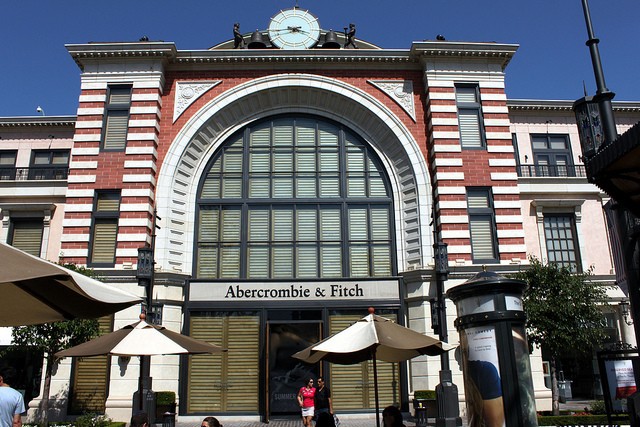Supreme Court Rules In Favor of Hijab-Wearing Abercrombie and Fitch Applicant

In 2008, Samantha Elauf applied for a sales job at an Abercrombie and Fitch in Tulsa, Oklahoma. Elauf, who is Muslim, was denied the job because she wore a hijab, which did not fit within Abercrombie and Fitch’s strict “Look Policy.”
Elauf filed an employment discrimination lawsuit against Abercrombie and Fitch, and yesterday, the Supreme Court ruled 8–1 in her favor. To quote the New York Times:
“This is really easy,” Justice Antonin Scalia said in announcing the decision from the bench.
It’s nice to see the Supreme Court get an easy day once in a while.
Justice Clarence Thomas was the lone dissenter, stating “I adhere to what I had thought before today was an undisputed proposition: Mere application of a neutral policy cannot constitute ‘intentional discrimination.’”
But the word “neutral” is like “normal;” it is designed to exclude. Fortunately, the company appears to be changing some of its historic attitudes about physical presentation. As Business Insider reports, Abercrombie and Fitch wrote a statement following the verdict that included:
We have made significant enhancements to our store associate policies, including the replacement of the ‘Look Policy’ with a new dress code that allows associates to be more individualistic; changed our hiring practices to not consider attractiveness; and changed store associates’ titles from ‘Model’ to ‘Brand Representative’ to align with their new customer focus.
They also now allow Brand Representatives to wear hijabs, which was really the point of the whole thing.
Before Elauf’s case reached the Supreme Court, she was awarded $20,000 in damages by a jury — but the decision was overturned by the United States Court of Appeals for the 10th Circuit, on the argument that if Elauf did not specifically state during her Abercrombie and Fitch interview that she wore her hijab for religious reasons, no religious discrimination occurred. According to the NYT, this Supreme Court victory means Elauf is likely to still win her $20,000, although it has to go back to the appeals court first.
$20,000, incidentally, is roughly equivalent to 2,353 hours working an entry-level retail job at Abercrombie and Fitch (Glassdoor lists hourly wages at around $8.50, though it varies depending on store location). Elauf, who is now a fashion blogger, would have had to spend 59 weeks working full-time at Abercrombie and Fitch to earn the equivalent of her potential $20,000 award.
So maybe everybody wins here. Elauf wins her lawsuit, she’ll probably get $20,000, Abercrombie and Fitch get the opportunity to make their hiring policies less discriminatory, and the Supreme Court gets an easy day.
Photo credit: Prayitno
Support The Billfold
The Billfold continues to exist thanks to support from our readers. Help us continue to do our work by making a monthly pledge on Patreon or a one-time-only contribution through PayPal.
Comments